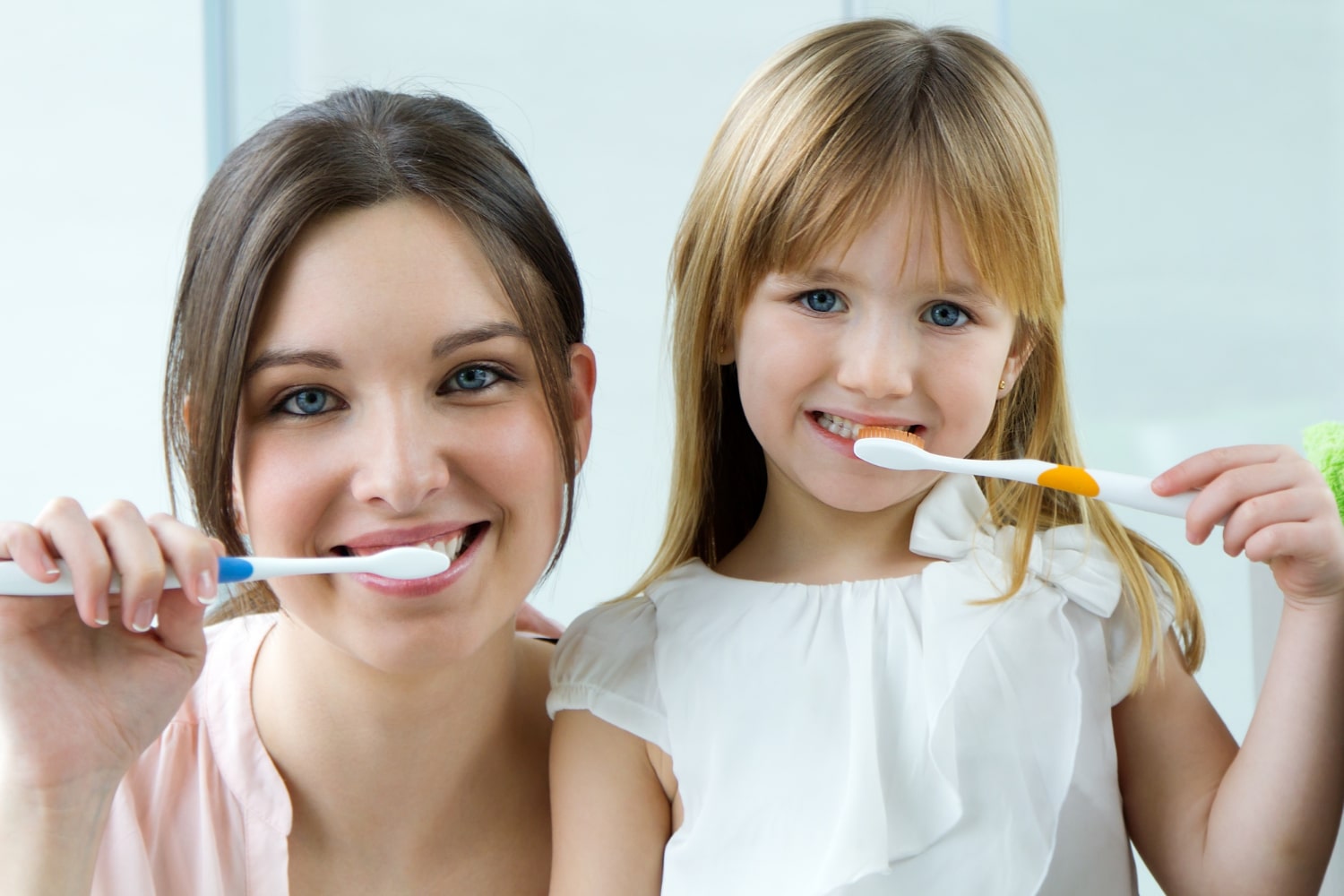
Caring for your child’s oral health starts after their first meal, long before a child’s first teeth begin to come in. Your children’s good oral habits are really important as they can set the tone for oral health throughout their life – and as their teeth are supposed to last their whole life, the pressure is real. Their oral health habits are not only caring for their teeth hygiene. Their nutrition also matters as it is closely connected to their oral health.
When should I start caring about my baby’s teeth?
Even while they are eating only milk, baby oral care starts with wiping gums with a wet cloth after each meal. This way you are removing the remaining milk that can introduce bacteria to the baby’s mouth. When their teeth start growing, you can buy a toothbrush with very soft bristles that were specifically developed for babies. They will not need toothpaste until they are at least 2 years old.
Their teeth start growing from the 4th to the 6th month – that’s when you should give them a cold cloth to soothe the irritation. Remember that tooth decay is an infectious disease, so it may transfer if you are using the same utensils as your child.
Avoid artificial sweeteners and sugar for as long as possible
It is impossible to live in a society and not be informed about the dangers of sugar. Sugar promotes everything you don’t want for either yourself or your child – high blood sugar, high insulin, triglycerides, and other harmful fats, as well as oxygen radicals. To put it simply, sugar-rich food gets you closer to diabetes, cardiac diseases, and many other illnesses. That’s why you should avoid certain foods that harm your teeth.
The replacement that is available in most of the ‘sugar-free’ foods is artificial sweeteners. The costs of food labelled as sugar-free are unfortunately also bad for the consumer. The diet drinks were also connected to the increased risk of metabolic syndrome development which is completely the opposite of why you have chosen to use them in the first place. The best solution is natural sugars found in fruits. This is all our bodies need.
Nutrition for healthy teeth
A healthy diet consists of mostly vegetables, which everyone can eat in any amount. The protein is also important as it promotes energy levels and, of course, activity. If your child happens to be hyperactive in your opinion, you should actually rethink their diet before going to the doctor. Sugar is the main issue for many health concerns in children, not only their teeth, so try hard to provide a diet full of veggies, fruits, and protein.
Get them used to dentist appointments
The first dentist appointment should be done before your kid turns 1. Among dentists, some dentists specialize in children's dental health, making them paediatric dentists. Children are specific patients, as they go through many changes that may need a specifically trained eye to recognize. Additionally, the approach to the little patients is majorly different from dealing with teens and adults.
Their fear of the unknown and reactions are affecting their behaviour and need a careful approach. Dental services, however, still need to start early to encounter any issues as early as possible and deal with them quickly, as the state of baby teeth will affect the health and growth of their permanent teeth.
Brushing teeth twice a day can be fun
The parents are in charge of supervising the regular teeth brushing. Set a timer and make a schedule for brushing teeth specifically. Show them how it is done and check their teeth and breath, in the end, to ensure they are doing the job well.
Developing a habit is not easy but it is important. If they might not see it now, you might consult with their dentist to encourage their oral health efforts. Some dentists give their patients rewards and improvised badges for a job well done. You might do the same – reward a short visit to the dentist by going to their favourite place or something smaller, like a favourite meal.
Rinsing after meals
The acids from food cause our teeth to soften. They stay like this for around an hour after a meal. This is why brushing right after a meal can damage tooth enamel and ensure easy entrance for the cavity. To avoid this, you don’t need to look at the watch nervously while still feeling the remains of the food between your teeth.
Since mouthwashes can be an issue for the smaller children, you can always teach them to use regular water. After they finish their meal, show them how to rinse their mouths with regular water. Gurgle, move the water around your mouth and make faces to show them how to do it and, in the end, spit it out.
Practice good oral hygiene together
The best role model for your child will be no other person than yourself. To emphasize the importance of healthy oral habits, do everything with them. Go together and choose new toothbrushes and toothpaste, then later brush teeth together. You can make a game of patience to brush for a few minutes or have a song that will explain how to brush their teeth. Don’t forget to wash your tongue and show each other how successful you were with it.
Written by Frank Robertson
About the Author
My name is Frank Robertson. I’m a writer. I choose my topics carefully and try to write about topics that can help my readers. Connect with me on Twitter.
You may also like
Top Tips for Having a Flawless Smile
10 Natural Tricks That Can Boost Your Wellness
6 Tips For Having A Youthful And Bright Smile
Necessary Tips To Keep Your Teeth Healthy
